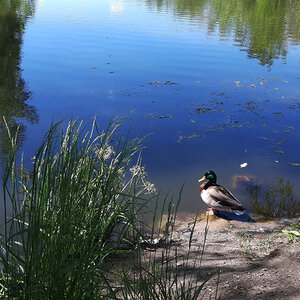NFWF, partners award $141.7 million for wildlife conservation projects

The National Fish and Wildlife Foundation (NFWF) has announced grants and matching contributions totaling $141.7 million in support of conservation projects across the United States.
The commitment includes $91 million in grants leveraging an additional $50.7 million in funds raised through NFWF’s America the Beautiful Challenge (ABC), all of which will be directed to 55 projects focused on wildlife conservation and habitat restoration and improving community resilience and access to nature. ABC is a partnership between NFWF and the U.S. Fish and Wildlife Service, the U.S. Natural Resources Conservation Service, the U.S. Forest Service, the U.S. Department of Defense, and Native Americans in Philanthropy. The competitive grant awards were made with funding from the federal Infrastructure Investment and Jobs Act, other federal conservation programs, private sources, and the Bezos Earth Fund.
Recipients include the Mississippi Department of Wildlife, Fisheries, and Parks ($4.3 million) to improve the resilience of 90,000 acres of fire-dependent habitats; Fond du Lac Band of Lake Superior Chippewa ($219,000) in support of existing and future on-the-ground management programs; the University of Montana ($674,000) to develop tools for and facilitate surveillance of 1.2 million acres of shrubland, grassland, and woodland habitat; and Ducks Unlimited ($348,000), which will advance on-the-ground wetland habitat restoration.
“The inaugural year of the America the Beautiful Challenge shows what’s possible when partners go all-in on a collaborative approach to providing resources for locally led restoration efforts,” said NFWF executive director Jeff Trandahl. “These grants will support voluntary landscape-scale conservation efforts that will restore fish and wildlife habitats across the nation and build a brighter future for all of us.”
For a complete list of grantees (12 pages, PDF), see the NFWF website.
(Photo credit: Getty Images/Kateryna Tomko)




